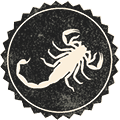Scorpion Antivenin – Anascorp
Anascorp is the first FDA approved antivenin in the US. It was approved on August 3, 2011 and is a specific treatment for Centruroides scorpion stings (bark scorpion species). In Arizona, Anascorp replaces the antivenin that was formerly produced at ASU, which did not require FDA approval and which was no longer available in 2004.
Anascorp is in the classification of an orphan drug, which are treatments for rare medical conditions. While many people are stung by bark scorpions, the majority of stings in the US occur in Arizona and Nevada and only a small population require the antivenin treatment.
Anascorp costs thousands of dollars per vial and most patients require 3 or more. Because of its high markup, cost is often factored in determining its use – as it can run up to an entire years salary for some. Dr. Leslie Boyer, director of the Venom Immunochemistry, Pharmacology and Emergency Response (VIPER) Institute has been reported as stating the high prices are “a public health problem”. Anascorp is only used for the sickest patients and not all hospitals have it available. There are patients that would benefit from the Anascorp but do not receive the treatment either because their hospital does not carry it, or the cost is to prohibitive for the family.
Fatalities from scorpion stings in the US are rare and are typically limited to small animals, small children, the elderly, and adults with compromised immune systems. There were two fatalities in the early 2000’s along with at least one fatality of a young child in the Phoenix East Valley area in 2013.
Anascorp is carried by a number of Arizona hospitals along with a few in Nevada and Utah. For a list of hospitals stocking the antivenin see Anascorp’s official list, or call your local hospital directly. We encourage all families with young children and a known scorpion population in their neighborhood to have a plan in place in case there is a stinging incident. For more information about medical issues, Poison Control – 1-800-222-1222 is always a great resource.
The most common adverse reactions in clinical studies were vomiting, pyrexia, rash, nausea and pruritus. Severe hypersensitivity, including anaphylaxis, may occur especially for those that have allergic reaction to horse proteins. Patients who have had previous therapy with Anascorp or other equine antivenin/antitoxin may be sensitized and be a risk for a severe hypersensitivity reaction. Since Anascorp is made from equine plasma, there may be a risk of transmitting infectious agents such as viruses.
There are likely many thousands of scorpion stings in the US that go unreported. About 12,000 to 15,000 a year are reported to Poison Control centers, though only a few hundred are life-threatening. Scorpion stings do not produce allergic reactions but result in more of a nerve poison.
While scorpions are a very scary creature and stings can be traumatic, statistics reflect they are a small threat to the Arizona and Nevada population as a whole. Collectively, the staff of Seal Out Scorpions can easily count over 30 sting incidents to ourselves and family members – either prior to the start of the company/service, or while on the job helping others keep scorpions out of their homes. While some have been a bit traumatic and painful, none required medical intervention.
While a small threat, precautions should be considered and controls should be put in place to ensure scorpions are not thriving in and around the home, especially if there are animals, small children or elderly individuals. If your home contains a large scorpion population, be sure to contact a local Gilbert scorpion control company, or a Chandler scorpion prevention company, to have them removed.
For more information on AnaScorp, see http://www.anascorp-us.com/resources/Expanded%20Brochure.pdf











